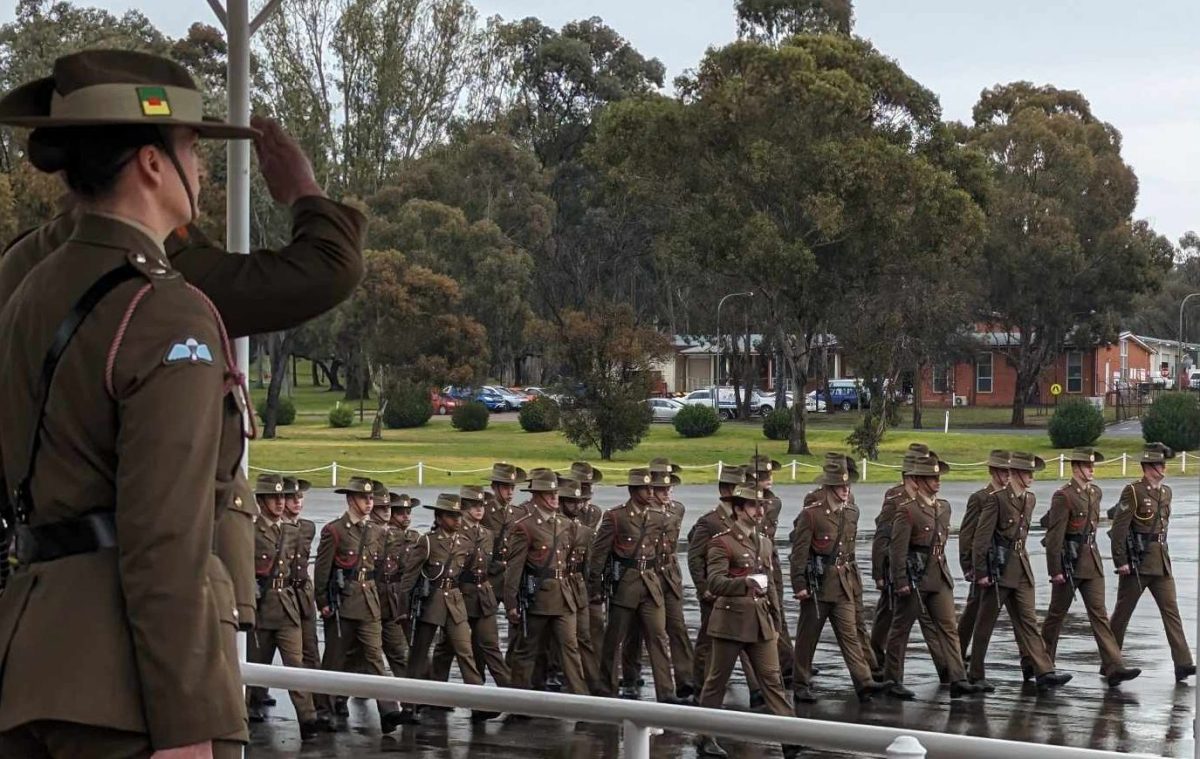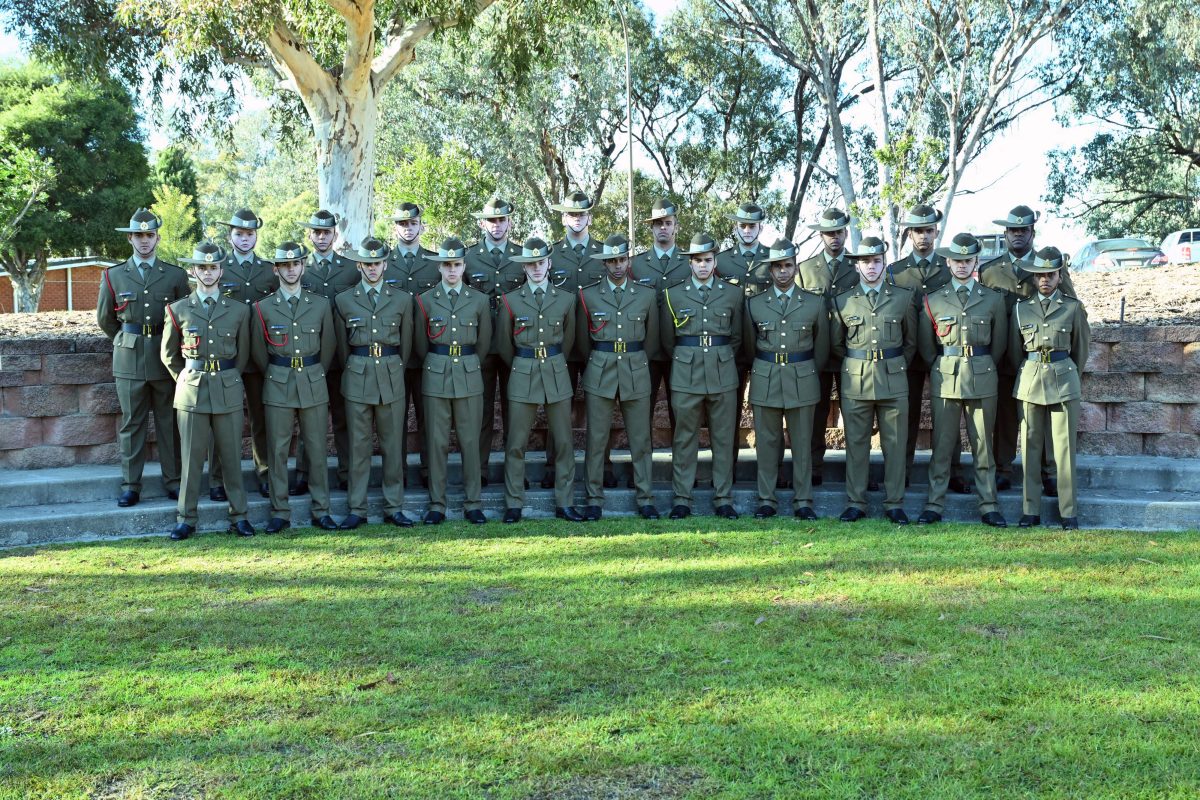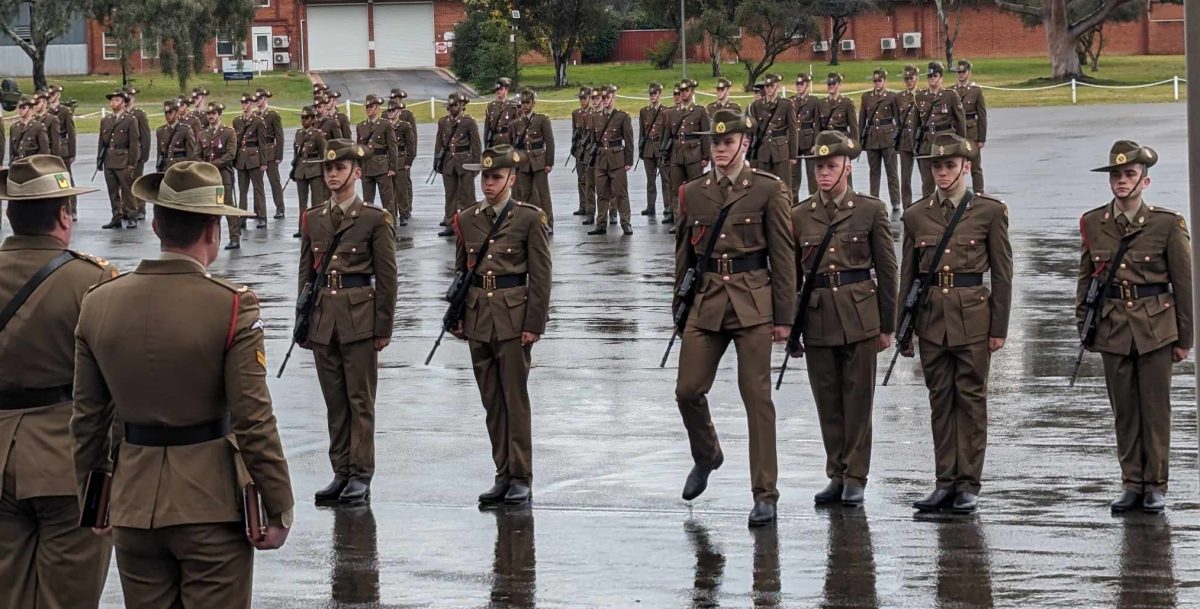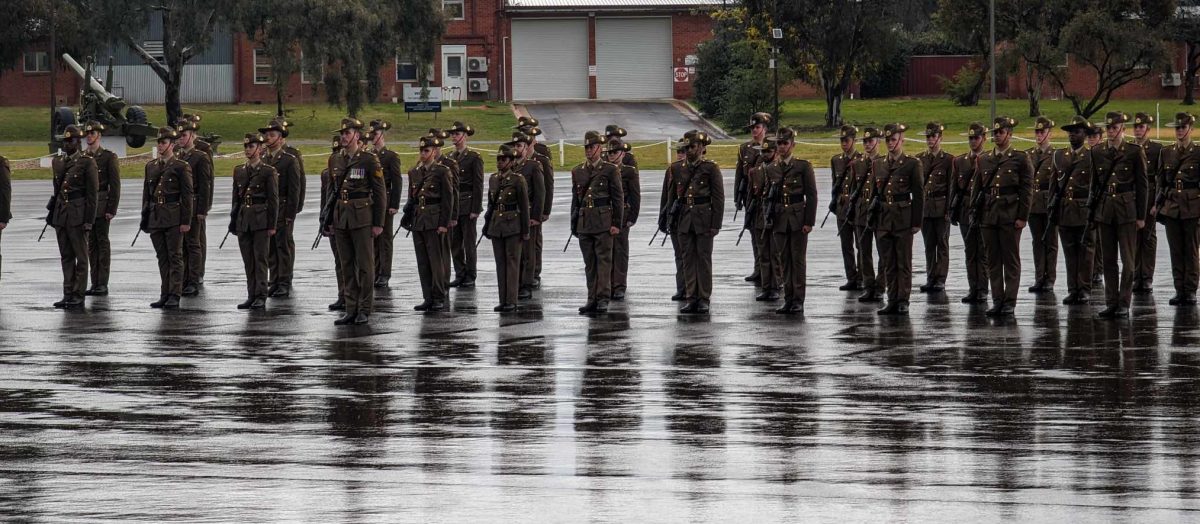
Graduating soldiers march past Kapooka Commanding Officer Colonel Tim Stone as part of the march-out parade on Friday (28 July). Photo: Jarryd Rowley.
Several recruits of the Army Indigenous Development Program (AIDP) were among the 85 members of the most recent graduating class of soldiers at the Kapooka Army Barracks on Friday (28 July).
The AIDP is a 17-week course that aims to support First Nations recruits in improving their education and medical, psychological and physical wellbeing before transitioning into army training.
Indigenous recruits must achieve their Certificate II in Vocational Skill (equivalent to year 10 English and maths) and a first-aid course before graduating from the program.
After the three-and-a-half-month program, AIDP recruits must then complete the three-month Army Recruit Course (ARC) before graduating as soldiers.
Four AIDPs are scheduled each year: two at Kapooka and two in Darwin.

The 22 graduating soldiers who completed AIDP training. Photo: Supplied.
Army Indigenous elder Aunty Lorraine Hatton helped mentor and support many of the AIDP recruits.
Aunty Lorraine said the AIDP helped instil confidence among Indigenous people that they could enlist in the Australian Defence Force (ADF) and enrol in military careers.
“Everything they’ve achieved over the 26 weeks shouldn’t be taken for granted,” Aunty Lorraine said.
“It’s been 26 weeks of hard work and to see them march here today is a huge moment. When looking back at all they have achieved over this period, they should be very proud.”
Aunty Lorraine had a distinguished career in the ADF, retiring in 2007 at the rank of Warrant Officer Class Two after 20 years of service with the Royal Australian Signal Corps.

Among the 85 recruits who graduated on Friday were six award winners across both platoons, including AIDP graduate Private Elijah James Wallace, RAINF (second from left), who was awarded for skill at arms.
“Now it’s 2023, it’s the first time I’ve come back to see a march-out parade and I couldn’t be more proud of our young Indigenous people,” she said.
Friday’s graduation saw 85 recruits, 22 of whom were a part of the AIDP, from the 33 and 34 platoons of Delta Company participate in a march-out parade in front of friends and family in wet conditions.
The poor weather didn’t put a dampener on proceedings, however, as tears of joy from family members of graduating soldiers flooded the parade grounds, including from platoon commander Lieutenant Rachael Kloprogge.
“It’s a very long process for our recruits that come through the AIDP that then had to go through the ARC,” Lieutenant Kloprogge said.
“It’s been an experience that has been tough at times but the feeling from all the staff and myself personally, we are ecstatic for them.”

Friends and family of the 85 soldiers braved the elements during a wet but moving parade. Photo: Jarryd Rowley.
Lieutenant Kloprogge said the first few weeks were a challenging transitioning period for the recruits as they moved from civilian life to a military one.
“We like to use the phrase ‘shock of capture’ to explain those first couple of weeks,” she said.
“They needed to learn how to sleep, eat, walk and live a completely different way of life. They’ve done that over the last three or six months, and it’s a massive achievement, one they should be really proud of.”







